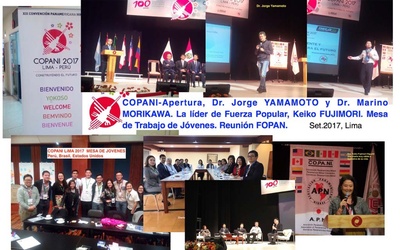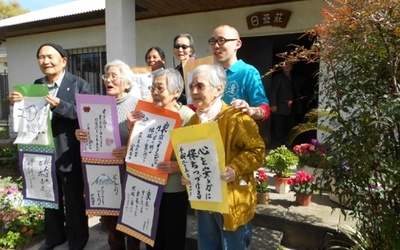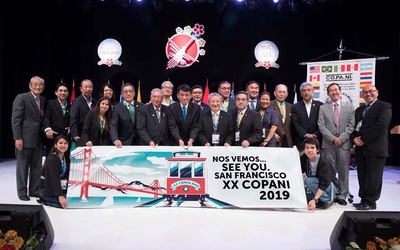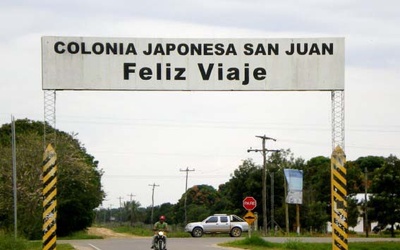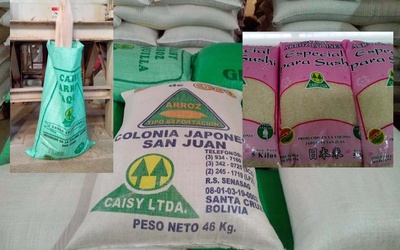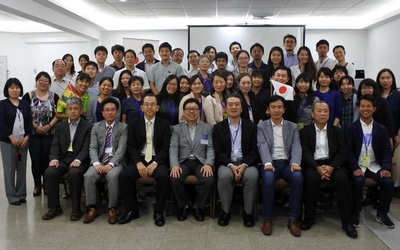The Nikkei of Latin America and Latino Nikkei
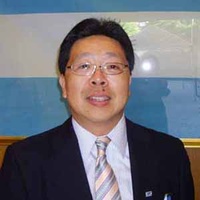
Lic. Alberto Matsumoto examines the many different aspects of the Nikkei in Japan, from migration politics regarding the labor market for immigrants to acculturation with Japanese language and customs by way of primary and higher education. He analyzes the internal experiences of Latino Nikkei in their country of origin, including their identity and personal, cultural, and social coexistence in the changing context of globalization.
Stories from this series
100th Anniversary of the Japanese Peruvian Association and the 19th COPANI Lima
May 4, 2018 • Alberto J. Matsumoto
The 19th Pan-American Japanese Convention (COPANI - Convención Panamericana Nikkei) was held in Lima, Peru from November 2nd to 5th, 20171, and at the same time, a ceremony was held to commemorate the 100th anniversary of the Peruvian Japanese Association (APJ - Asociación Peruano Japonesa) 2 . This year's COPANI featured a variety of programs under the theme of "Building the Future." There were numerous lectures, including a keynote speech by economist Luis Baba Nakao on current global economic trends, …
Are Japanese Latinos in Japan Preparing for Retirement?
April 2, 2018 • Alberto J. Matsumoto
Thirty years have passed since the "dekasegi" phenomenon began in Japan, and many Japanese South Americans have now settled in Japan. The proportion of elderly people is gradually increasing, and there are also increasing cases of families who have decided to live in Japan permanently bringing over their elderly parents from their home countries. Are Japanese Latinos in Japan "prepared for retirement"? In Japanese communities in South America, there are unique elderly support and welfare services that utilize donations from …
Japanese People Around the World: From the End of the Edo Period to Today - Part 2
Dec. 28, 2017 • Alberto J. Matsumoto
Read Part 1 >> Some say that overseas migration, which began in earnest in the Meiji era, did not achieve the results that had been expected. Hundreds of thousands of Japanese emigrated to North and South America before the war, but that number was less than 1% of Japan's total population, and far more people went to the Americas from Europe. Despite unfavorable trade conditions, partly due to the national colonial policy, Meiji Japan's industrial reforms and other developments in …
"Japanese Americans" around the world - From the end of the Edo period to today - Part 1
Dec. 27, 2017 • Alberto J. Matsumoto
Currently, there are approximately 3.5 million people of Japanese descent living overseas.1 Although it depends on how you define "Japanese descent," here we define it as Japanese people living overseas and their descendants. Some third- and fourth-generation Japanese do not consider themselves to be of Japanese descent, but these people are included in the Ministry of Foreign Affairs' statistics on the number of Japanese people residing overseas, totaling 1.33 million (870,000 long-term residents and 460,000 permanent residents) .2 Before the …
New challenges for the Japanese colony in Santa Cruz, Bolivia
Sept. 29, 2017 • Alberto J. Matsumoto
In May of this year (2017), I went to Santa Cruz, Bolivia as a lecturer for the overseas training of JICA Japanese Community Volunteers. This training was aimed at the "Japanese Community Youth and Senior Volunteers" dispatched from Japan to Latin America. As part of the training, I visited the San Juan Colony, 138 km away from Santa Cruz, a two-and-a-half hour drive, and the Okinawa Colony, 100 km southeast of there, where I had the opportunity to tour some …
The Efforts and Roles of JICA's Japanese Community Volunteers: Participating in an Overseas Training Program in Bolivia
Sept. 1, 2017 • Alberto J. Matsumoto
Japan dispatches many cooperation volunteers to developing and emerging countries as part of its ODA (Official Development Assistance). The most well-known is the Japan Overseas Cooperation Volunteers (JOCV), dispatched by the Japan International Cooperation Agency (JICA). When it comes to developing countries, variety shows often feature the activities of current or former JOCV members. JICA also has its own support program for Japanese communities in Latin America, and there is a volunteer system for young people and seniors1 . The …

